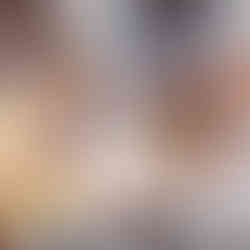Exploring the Palette of Expressive Art Therapy Modalities
- Paridhi Shrivastava
- Apr 13, 2024
- 2 min read
Expressive Art Therapy encompasses a diverse range of modalities that tap into the innate human ability to express thoughts, emotions, and experiences creatively. Each modality offers a unique pathway to self-discovery, healing, and personal growth. Let's delve into the science behind some of these modalities and explore how they can benefit you.
"Art enables us to find ourselves and lose ourselves at the same time." - Thomas Merton
Visual Art: Painting, drawing, and sculpting are powerful forms of expression. The act of creating visual art stimulates the brain's neural pathways, fostering emotional regulation and self-awareness. For example, painting abstract emotions like joy or sadness can provide insight into one's inner world.
Movement: Dance and movement therapy utilize the body's language to express emotions and release tension. Moving rhythmically to music can enhance mood, reduce stress, and improve body awareness. For instance, using dance to embody feelings of freedom or confinement can offer profound insights.
Music: Music has a profound impact on emotions and cognition. Playing instruments or engaging in music therapy can enhance mood, reduce anxiety, and improve communication skills. Listening to different genres of music can evoke various emotions, allowing for introspection and emotional release.
Drama: Acting and role-play allow individuals to explore different perspectives and narratives. Drama therapy can enhance empathy, improve interpersonal skills, and promote emotional expression. Acting out scenarios can help process complex emotions and experiences.
Writing: Journaling, poetry, and storytelling are therapeutic forms of expression. Writing allows for introspection, clarity, and emotional processing. For example, writing letters to oneself or fictional characters can provide a safe space for exploration and healing.
Try creating a mixed-media collage that represents your emotions and experiences using images, words, and colors. Start by reflecting on a recent event or feeling, gather materials that resonate with you, and let your creativity flow onto the canvas.
Embracing different Expressive Art Therapy Modalities in your self-care routine or professional practice can enhance emotional well-being, foster self-discovery, and promote holistic healing.
Ready to embark on a journey of self-exploration through Expressive Art Therapy? Book a session with our experienced art therapist today and unlock the transformative power of creativity in your life.


Comments